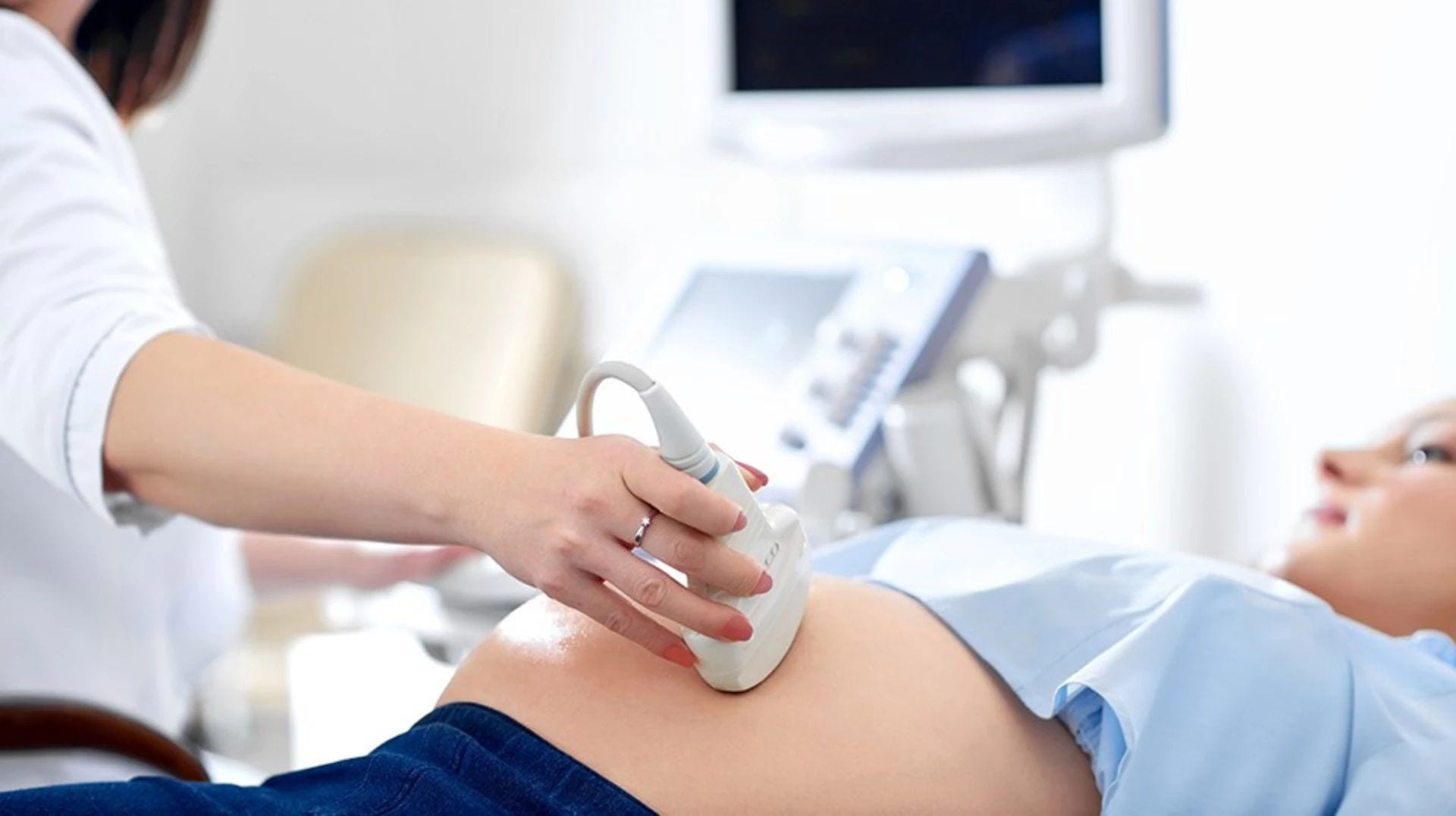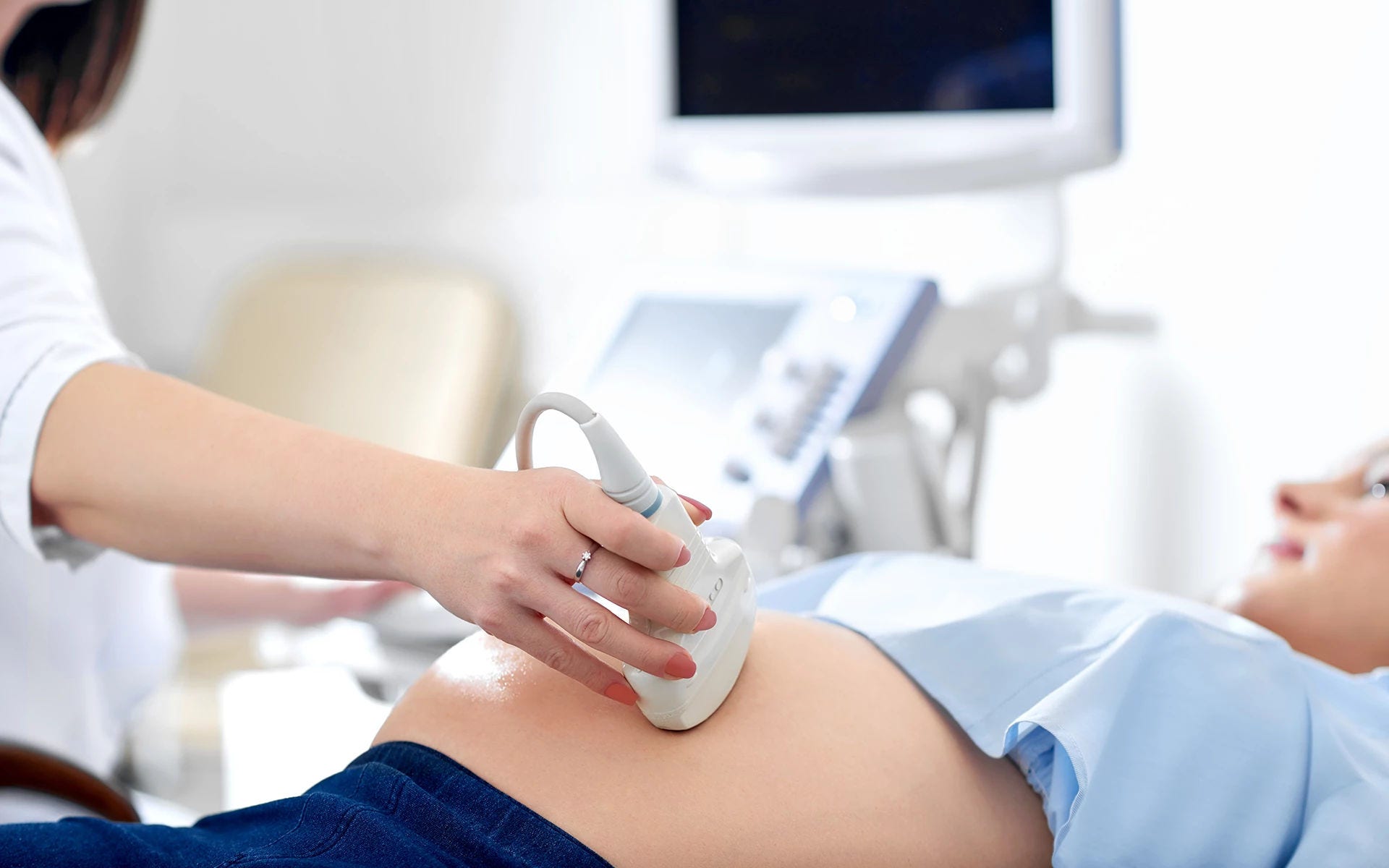Baby Scans: An overview of pregnancy ultrasounds
Your first pregnancy scan can be an exciting yet nerve-wracking experience. It offers the first tangible signs of what’s going on inside and it’s the closest you’ll come to meeting your baby until they’re delivered into your arms. Learn about why scans are offered, and what to expect during a typical ultrasound scan.

What is an ultrasound scan?¹
An ultrasound scan bounces high-frequency sound waves back and forth different parts of the body to build up a simple black and white picture of your baby as it grows in the womb. It’s a painless procedure with no known side-effects for mum or baby, although you may experience some very minor discomfort from the pressure of the probe on your bump, and having to hold on to a full bladder throughout.
Your 12 and 20 week scans
As part of the NHS pregnancy care program you will be given two free scans during your pregnancy. The first scan, is between your 10th and 14th week of pregnancy, (typically around 12 weeks). The second pregnancy scan is anytime between your 18th and 21st week (typically around 20 weeks)2. Scans are strongly recommended to monitor the progress of your baby in the womb but they are not compulsory.
Early pregnancy scan
If you are experiencing pain or bleeding, have had a previous miscarriage or an ectopic pregnancy, you may be invited to have an early scan between six and ten weeks. This is not the same as an ultrasound scan as your baby will be very small at this stage. During this scan a probe will be inserted into your vagina to gain a clearer picture of developments and identify a heartbeat. Although more invasive than an ultrasound, it is a simple and pain-free procedure. Your medical team will be on hand to give you plenty of support and reassurance throughout.
Growth scan
You may be invited to have more than 2 scans, depending on your health and your pregnancy journey2. A ‘growth’ scan around 32 weeks is sometimes needed. This scan is not required for all pregnancies, but it is offered as a precaution to check your baby’s growth and position in the final few weeks3
There are no known risks to mother or baby of having an ultrasound scan
Your baby scan questions answered
Where are scans carried out?
Pregnancy scans are carried out on the NHS at a hospital. Your first scan appointment will be triggered when you notify your GP of your pregnancy.
How many baby scans do I have?
You will have two ultrasound scans as part of your pregnancy. Additional scans may be requested by your midwife. The first scan is sometimes called the ‘dating’ scan. The second scan is sometimes called an ‘anomaly’ scan.
What happens in a pregnancy scan?
You’ll be asked to lie on the bed and pull your clothing up or down to reveal your tummy. The lights will be dimmed to enable the sonographer to get a good view of the screen. The sonographer will spread gel onto your bump to allow the probe to move freely, before taking screenshots of ultrasound images and recording measurements on their computer2.
When can I find out if it’s a boy or a girl?
During your 20-week scan the sonographer may also be able to identify your baby’s gender4. Your sonographer will usually ask you first, but if you’d prefer not to know make it clear at the start of your scan. Bear in mind that their prediction cannot be 100% accurate.
How long do baby scans take?
The ultrasound pregnancy scan typically takes 20 to 30 minutes to complete2, depending on a number of factors. A wriggly baby can be trickier to measure and may require several attempts to take measurements to ensure accuracy.
What are the risks of baby scans?
There are no known risks to mother or baby of having an ultrasound scan2.
How much do baby scans cost?
The two scans that you have through the NHS are free, but there may be a charge for print-outs and multiple copies of your scan photos. The cost of your scan print-out is set by each NHS Trust. It’s a good idea to take some cash with you.
The NHS provide 2D scans, but it is possible to pay for 3D or 4D baby scans through private services. These types of scans will show clearer and more vivid representations of your baby, but they are not essential.
What time off work can my partner and I have for scan appointments?
The Government advice for the rights of pregnant women and their partners with respect to leave from employment for ante-natal appointments is as follows:
Employers must give pregnant employees time off for antenatal care and pay their normal rate for this time off. The father or pregnant woman’s partner has the right to unpaid time off work to go to 2 antenatal appointments⁵.
Remember, the definition of ante-natal appointments is not limited to pregnancy scans and medical appointments; it could also include antenatal or parenting classes if they’ve been recommended by a doctor or midwife5.
Related articles
Read more

Need some help?
You can get quick answers to common questions in our FAQs.
Alternatively, if you need help with general pregnancy or baby advice, or maybe on using or ordering our products - our expert team are always on hand to talk about feeding your baby.
- NHS. Ultrasound scan [Online] 2018. Available at https://www.nhs.uk/conditions/ultrasound-scan/ [Accessed July 2021]
- NHS. Ultrasound scans in pregnancy [Online] 2020. Available at https://www.nhs.uk/pregnancy/your-pregnancy-care/ultrasound-scans/ [Accessed July 2021]
- NHS. 3rd Trimester Obstetric Ultrasound Scans Fetal Growth Assessment [Online] 2021. Available at https://www.hey.nhs.uk/patient-leaflet/3rd-trimester-obstetric-ultrasound-scans-fetal-growth-assessment/ [Accessed July 2021]
- NHS. 20-weeks screening scan [Online] 2021. Available at https://www.nhs.uk/pregnancy/your-pregnancy-care/20-week-scan/ [Accessed July 2021]
- Gov.uk Pregnant employees’ rights [Online] 2021. Available at https://www.gov.uk/working-when-pregnant-your-rights [Accessed July 2021]
Last reviewed: 28th July 2021
Reviewed by Oriana Hernandez Carrion






